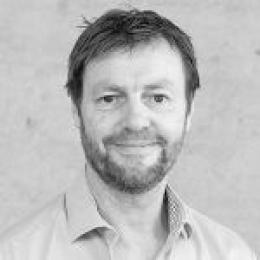Dr Stefan Schneiderbauer is Co-Head of Global Mountain Safeguard Research (GLOMOS) Programme, a joint endeavor of UNU-EHS and Eurac Research in South Tyrol.
Dr Schneiderbauer's educational background is embedded in geoscience and the application of remote sensing techniques for natural resource management. He studied Geography at the University of Cologne (Germany) as well as at the Université Louvain‐La‐Neuve (Belgium) and obtained his PhD from the Department for Geosciences of the Free University Berlin (Germany) with a dissertation on populations’ risks and vulnerabilities to natural hazards. His main fields of research comprise of climate-related risk analyses, dynamic exposure assessments, social vulnerabilities and community resilience particularly within social-ecological systems in mountain regions.
Before joining UNU-EHS, Dr Schneiderbauer worked for 12 years at Eurac Research where he initiated and headed the Research Group “Climate and Disaster Risk” within the Institute for Earth Observation. He managed an interdisciplinary team of researchers with whom he developed and applied concepts as well as standardized procedures to analyze and assess multi-risks related to natural hazards. In this position he acquired and led research and consultancy projects at European, Alpine and local scale with a strong emphasis on risk governance issues as well as the identification and monitoring of most appropriate adaptation measures as immediate policy support.
Dr Schneiderbauer’s interest in natural hazards-related exposure and vulnerabilities originate from his research work at the European Commission’s Joint Research Centre in Ispra, Italy, where his work capitalized on the added value of space-born data and information for assessing risks outside of the European Union.
Previous work experience covers lecturing at various universities in Berlin, facilitating and consulting of projects in development cooperation as well as training and capacity activities for participatory mapping using Geo-Information and Remote Sensing technologies. The majority of this work was carried out in Sub-Saharan Africa.

